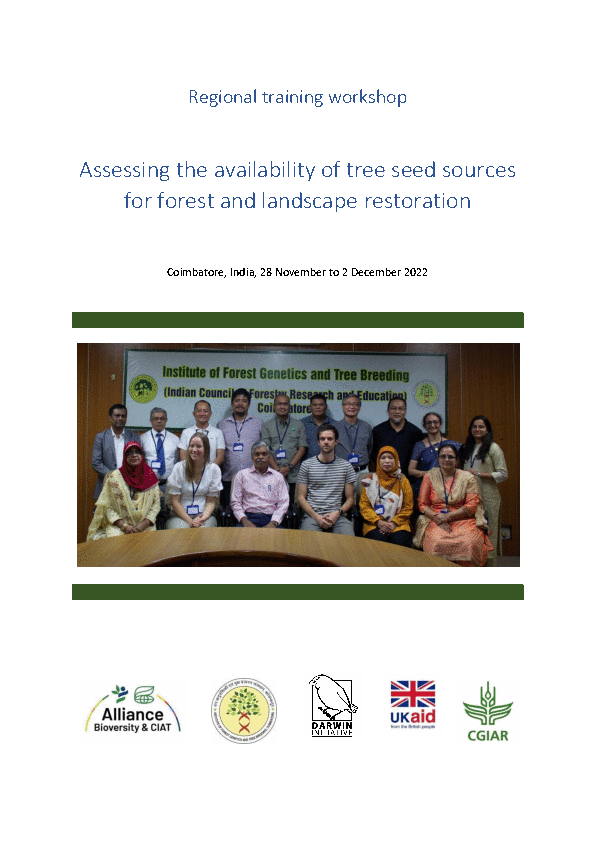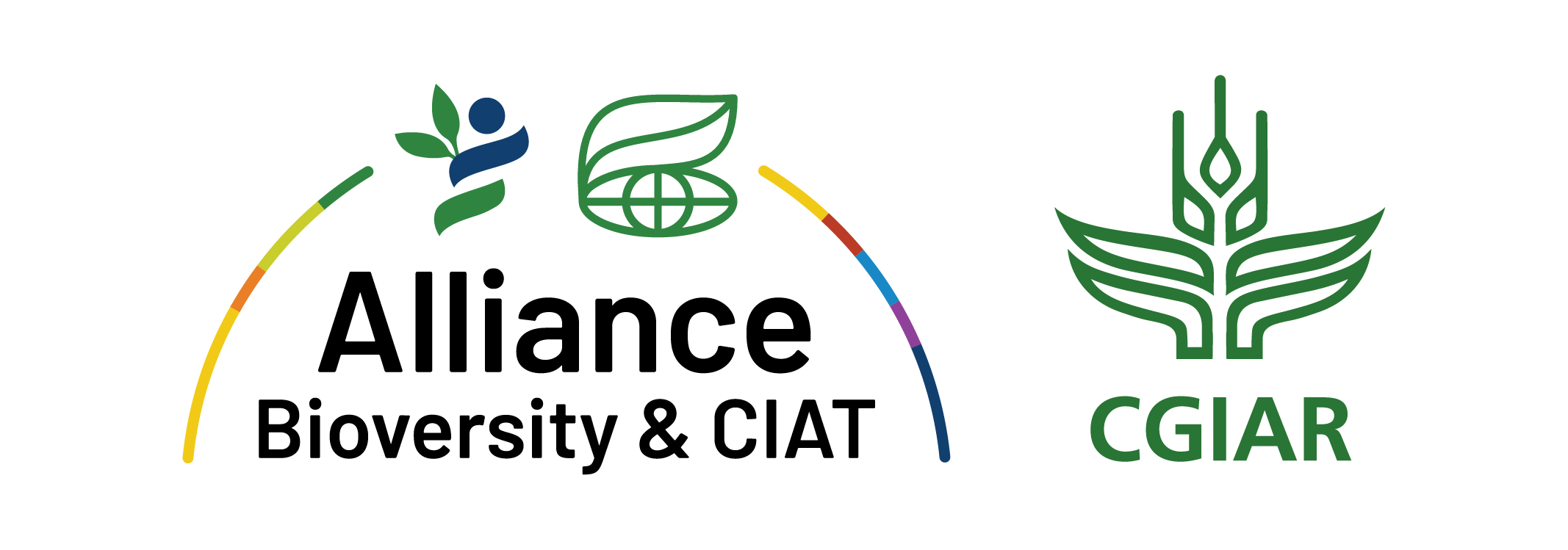The regional training workshop “Assessing the availability of tree seed sources for forest and landscape restoration” was organised in Coimbatore, India, from 28 November to 2 December 2022. The purpose of the workshop was to equip forestry experts in Asian countries to carry out spatial analyses on the availability of tree seed sources for native tree species. The specific learning objectives were to enable participants to:
- Model habitat suitability of tree species by tuning Maximum Entropy (MaxEnt) models
- Identify gaps in the availability of seed sources by overlaying species distributions, seed zone maps and locations of existing seed sources
The training was delivered using R Studio and QGIS which are both freely accessible software. The training was attended by 13 experts from five national research institutions in Bangladesh, India, Indonesia, the Philippines, and Laos. It was delivered by Dr Tobias Fremout of the Alliance of Bioversity International and CIAT, and hosted by the Institute of Forest Genetics and Tree Breeding (IFGTB) of India. The training was sponsored by the UK Darwin Initiative and the OneCGIAR Initiatives on Nature-positive Solutions and Sustainable Intensification in Mixed Farming Systems.
The training workshop was organised as part of the regional project “Strengthening collaborative tree seed supply systems for restoration in Asia” (2022-2024), led by the Alliance and funded by the UK Darwin Initiative. The project seeks to strengthen institutional and technical capacities to develop seed supply chains for native tree species in Bangladesh, India, Indonesia and the Philippines, so that forest and landscape restoration projects are linked with quality seed sources and local seed producers are linked with customers to support local livelihoods and sustainable forest management. The project will analyse gaps in the current availability of seed sources for pilot tree species in each country and support the identification of new seed sources and seed supply chains to fill the gaps.

